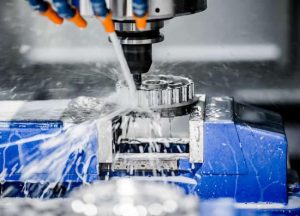Why Rapid Prototyping CNC Milling Is the Future?
Introduction
Rapid prototyping CNC milling represents a paradigm shift in product development and manufacturing processes. Combining the speed and precision of CNC milling with the iterative nature of rapid prototyping, this approach offers numerous advantages for industries ranging from aerospace to consumer electronics. In this article, we explore why rapid prototyping CNC milling is poised to become the future of manufacturing.

Accelerated Product Development
One of the key advantages of rapid prototyping CNC milling is its ability to accelerate product development cycles. Traditional prototyping methods often involve time-consuming processes such as manual machining or tooling, which can lead to lengthy lead times and delays. Rapid prototyping CNC milling streamlines the prototyping process, allowing designers to quickly translate concepts into physical prototypes for testing and evaluation. With lead times as short as a few days, manufacturers can iterate rapidly, refine designs, and bring products to market faster than ever before.
Precision and Accuracy
Rapid prototyping CNC milling offers unparalleled precision and accuracy. CNC machines are capable of machining parts with tolerances as tight as 0.001 inches, ensuring that prototype parts meet exact specifications. This high level of precision is essential for industries where even minor deviations can have significant implications for performance and safety. Whether producing complex geometries or intricate features, rapid prototyping CNC milling delivers consistent and reliable results with minimal margin for error.
Cost-Effective Solutions
Cost-effectiveness is a driving factor behind the adoption of rapid prototyping CNC milling. While initial setup costs may be higher than traditional prototyping methods, the efficiency and speed of CNC milling ultimately result in lower per-part costs. With reduced material waste, labor costs, and lead times, manufacturers can produce prototypes more affordably without sacrificing quality or accuracy. Additionally, the ability to iterate quickly minimizes the risk of costly design errors and rework, further enhancing cost savings over the product lifecycle.
Material Versatility
Rapid prototyping CNC milling offers a wide range of material options to suit diverse applications. From metals like aluminum, steel, and titanium to plastics such as ABS, nylon, and polycarbonate, CNC milling can accommodate various materials with different properties and performance characteristics. This versatility enables designers to select the most suitable material for each application, balancing factors such as strength, weight, and cost. With access to an extensive range of materials, rapid prototyping CNC milling empowers innovation and creativity in product development.
Scalability and Production Flexibility
Rapid prototyping CNC milling is highly scalable and adaptable to varying production requirements. Whether producing a single prototype or a small batch of production parts, CNC milling can accommodate different production volumes with ease. This scalability makes rapid prototyping CNC milling suitable for both prototyping and small-scale production runs, eliminating the need for costly tooling changes or reconfiguration. Manufacturers can seamlessly transition from prototype development to full-scale production, minimizing time-to-market and maximizing efficiency.
Conclusion
Rapid prototyping CNC milling represents the future of manufacturing, offering accelerated product development, precision and accuracy, cost-effective solutions, material versatility, and scalability. By leveraging the capabilities of rapid prototyping CNC milling, industries can innovate faster, reduce costs, and stay ahead of the competition in today’s dynamic market landscape. Explore rapid prototyping CNC milling services to unlock the full potential of your prototyping and production initiatives.